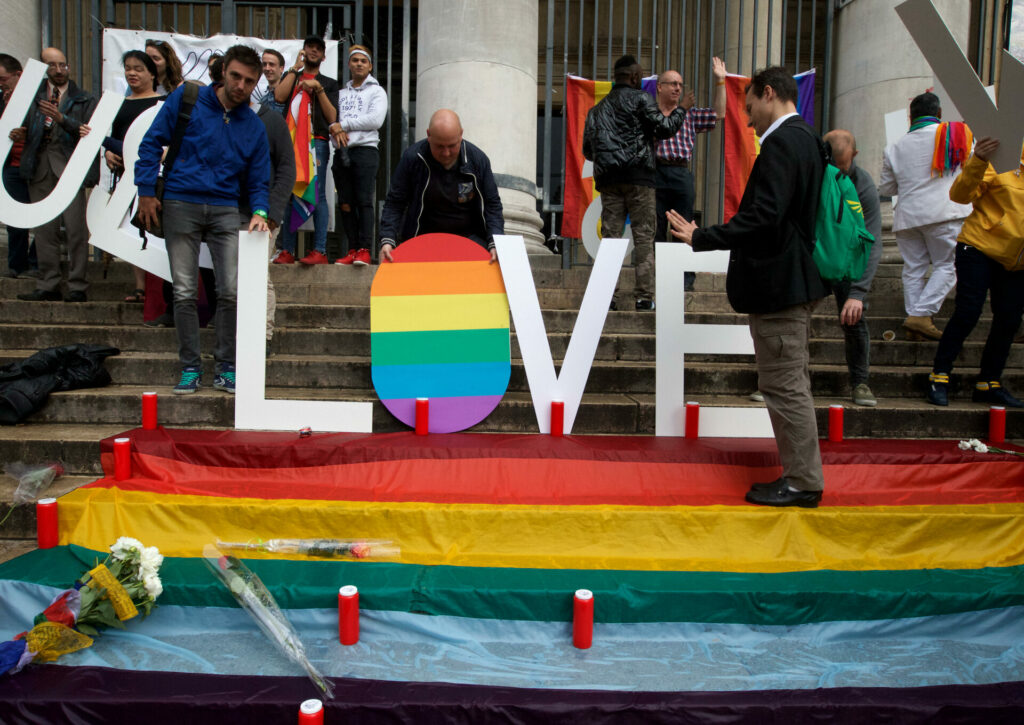One in three people who are part of the LGBTQ community in Flanders has been the victim of physical violence in the past two years, according to a survey by the UZ Gent/Transgender Infopunt.
The physical violence in question mainly constitutes shoving, pushing and being pelted by objects. Severe aggression, such as strangulation, was also reported. An equally large group said they were victims of material violence, such as the destruction of property or smashing a car window.
"This is a staggeringly high number," said Flemish Minister of Coexistence Bart Somers, who commissioned the survey. "As a society we have made immense strides yet it turns out that a very large part of the LGBTQ community faces violence."
More than 60% also said they have been victims of sexual violence in the past two years and about 93% of respondents have also experienced verbal or psychological violence. One in five reported that the sexual violence took place while going out.
Barely 15% report to the police
Perpetrators often act alone and in more than 40% of cases, the victim knew the perpetrator. These include one's own parent(s), acquaintances, friends, fellow pupils, teachers, and school management. Strikingly, the researchers also found that most incidents take place during the day, on public roads or in a publicly accessible place.
Still, barely 15% of victims reported the incident to the police. Others stated that they were too shocked to react or initially took themselves to safety. When they are victims of physical or material violence, they do report it more often.
Therefore, the researchers are concerned about the psychological consequences of their findings: seven in ten respondents said they have seriously considered ending their lives at least once. Suicidal thoughts are most common among transgender and gender-diverse respondents, people with disabilities, economic vulnerability or after an experience of verbal and/or sexual violence.

11th edition of the 'Antwerp Pride' parade. Credit: Nicolas Maeterlinck
The Flemish advocate for LGBTQ people and umbrella of LGBTQ organisations, çavaria, is calling for policymakers to intervene and compares this survey to a similar one of a decade ago. "Although the studies cannot be compared exactly, one thing is clear: there is very little positive evolution," said çavaria's Eef Heylighen, adding that the study confirms what has been known for some time.
"LGBTQ people in Flanders face a lot of verbal, psychological, physical, sexual and material violence. This has a major effect on their physical and mental well-being," she said. "Almost 70% of survey participants say they have ever seriously considered suicide. This is way too much, it urgently needs to change."
The organisation stressed that despite the legal emancipation of people in the LGBTQ community, social acceptance still lags behind. "This is the case in the welfare sector, in education, in the workplace, and in the social environment of LGBTQ people."
Related News
- Gen Z more open to identifying as LGTBQ than previous generations, study finds
- Deadliest rise in anti-LGBTQ violence in over a decade, experts warn
- Belgium to support EU decision to take Hungary to court over anti-LGBTQ law
In more than 80% of cases, in all types of violence, the aggressor is a man. Clinical psychologist at the University of Ghent (UGent) Aisa Burgwal told VRT that "there are many misconceptions about perpetrators and people of colour: only 15% of perpetrators have a different skin colour or speak a different language. The vast majority are white men."
In the most serious incidents, respondents generally know the perpetrator. "It could be a parent, a friend, a colleague, a superior, a classmate. The impact is greater because it comes from an unexpected place."
Burgwal said that she hopes the study will lead to concrete measures: "Our biggest recommendations are education, awareness-raising and training. This needs to be addressed very early in schools so that it becomes normalised in our society."

